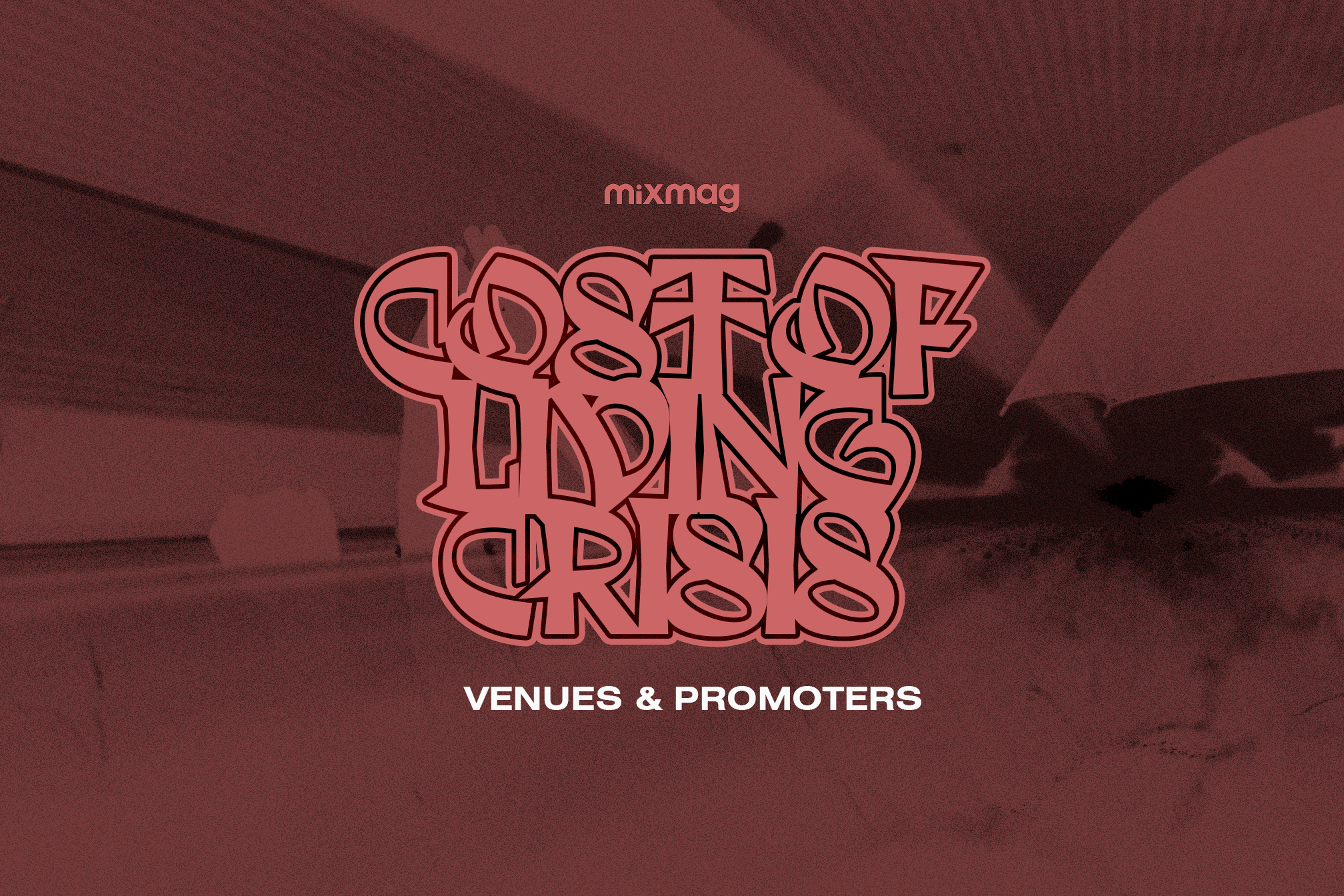 Features
Features
How The Cost Of Living Crisis Is Impacting Nightclubs And Promoters
Kicking off our Cost of Living series, Megan Townsend looks at the catastrophic knock-on effect that higher energy prices are having on nightlife spaces and promoters in the UK
This article is part of Mixmag's Cost of Living series exploring how the current economic crisis is impacting dance music. For more features and a list of resources available to UK residents, click here.
“It’s far scarier now than it was during the pandemic” says Rik-Ines Andrin director and co-founder of Leeds venue Old Red Bus Station. “It's disheartening. We're trying to crack on with it and not give up, but we're all painfully aware that if things don't change we're going to run out of money by April.”
18 months on since venues across the UK reopened, the continued existence of many is in more jeopardy than ever. Despite an upsurge in attendees in the months following “freedom day” and - for many of us - a newly-revitalised appreciation for nightlife spaces, a myriad of cataclysmic effects brought on by the cost of living crisis is proving an impossible hurdle to overcome. Surging electricity bills, spiralling travel costs, increases in the price of goods and services and a dramatic change in crowd habits have hit an industry still reeling from lockdown to near-breaking point.
In spite of urges from across the industry, the UK government has provided little to no support to those impacted by the current economic crisis - and as the Energy Bill Relief Scheme and the current reduced VAT rate look set to end after March 31, it’s likely the situation could become even more dire. As those who maintain the dancefloors and parties we hold so dear struggle to save their livelihoods, many are questioning whether the nightlife industry, in its current form, will be able to bounce back. What can be done to alleviate the crisis’ effects? How will this affect our scene in the long-term? And what will be left of it once the country recovers?
COVID-19 restrictions gradually began to lift across the nations of the UK in summer 2021 after nearly two years of nightlife closure, and an industry that had lost £36 billion and 86,000 jobs was forced to scramble to meet the demand of eager clubbers and recoup lost earnings. Relief over the end of lockdown was short-lived, and a lack of clarity on nightclub testing and entry rules, staff shortages (including security staff), taxi shortages and a reported 40% drop in attendance made it difficult for venues to make ends meet. “We had two months of sold out shows at first,” says Saad Shaffi, the Co-owner and Director of Liverpool’s 24 Kitchen Street. “Then after that we just saw a dip. Historically we see a dip every November, but it just never came back.” The knock on effects of the UK officially leaving the EU on December 31, 2020, including the introduction of new import taxes, visas, loss of workers and shortages of equipment continued to add on even more pressure. A huge increase in COVID cases due to the Omicron variant starting in late 2021 only further complicated matters. Though the requirement to self-isolate had been scrapped, some venues saw a 60% dip in custom with crowds reluctant to put Christmas plans in jeopardy. A £1 billion bailout for the hospitality sector from then-chancellor Rishi Sunak was criticised as “too little”, as venues in Scotland, Wales, Northern Ireland and later England were forced to shutter through January 2022.
Read this next: Cost of Living: A list of help and resources
At the same time, the existing global energy crisis worsened due to the combined effects of Brexit and the Russian invasion of Ukraine. The crumbling state of the Conservative Party, including two leadership elections and Liz Truss’ short-lived premiership which saw a dramatic drop in the pound, meant that the government took little action ahead of the winter to curb the crisis. Relief schemes just weren’t good enough. The 5% VAT rate didn’t cover alcohol sales. And despite it being the first year of unrestricted nightlife since the pandemic, more clubs closed in 2022 than the year before. “We’re losing a nightclub every couple of days right now,” says Michael Kill, the CEO of the Night Time Industries Association (NTIA). “13,800 have closed since the pandemic, 4,800 of those have been in the past year. Eight out of 10 are either barely breaking even, or losing money. That’s the flash poll figure we’ve got.”
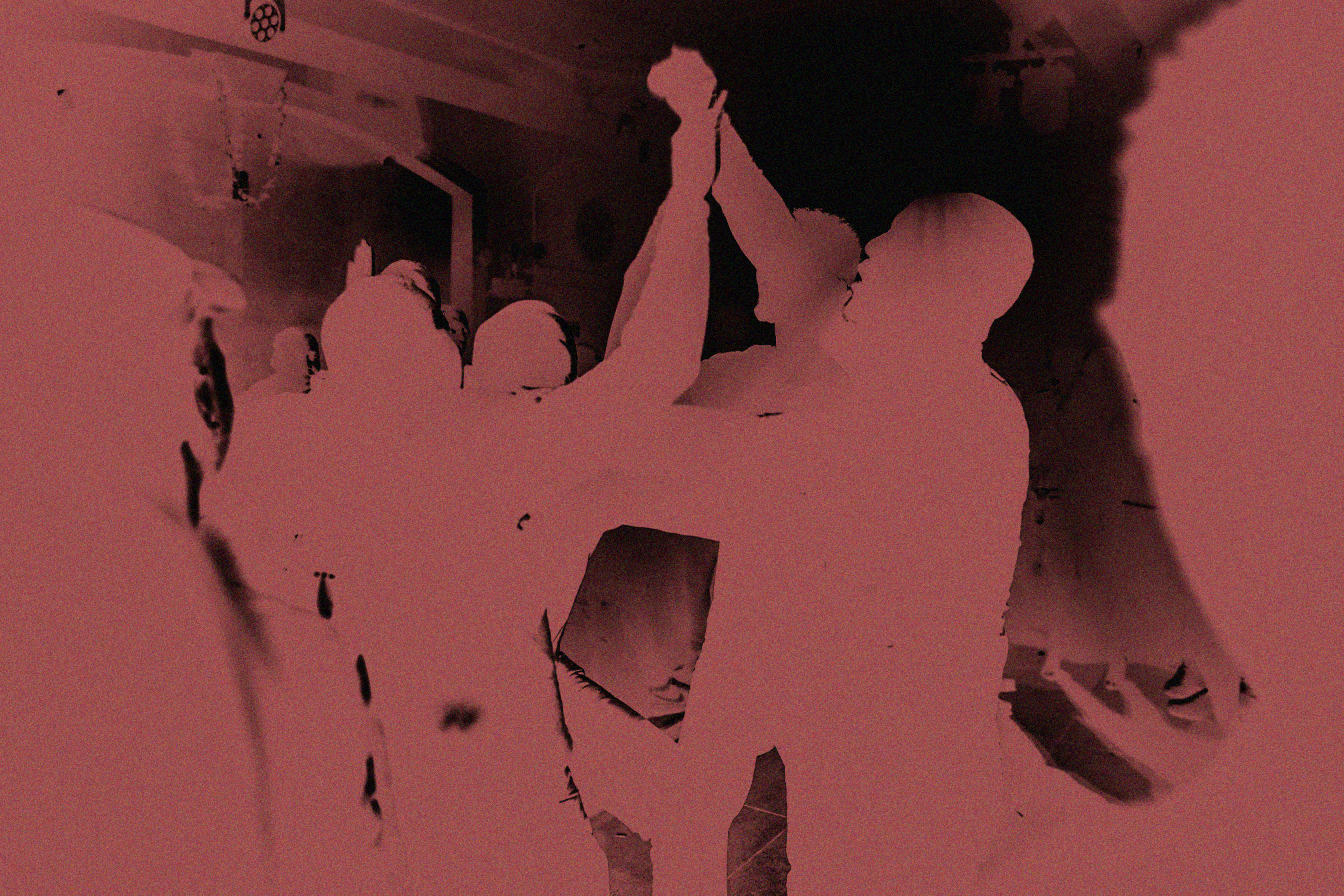
Kill relays clubs are now paying on average an extra 40% in operating costs, with energy being the predominant worry. “The costs have gone up quite a lot [in the last six months], it makes it harder to make any sort of money from anything,” says the co-founder of London’s The Cause, Stuart Glen. “From security to staff, fees for artists, electricity, all your utilities.” The Cause left its original home in Tottenham early last year, setting up a new temporary home in East London. Though Glen admits the support from fans has been “incredible,” the cost to set-up the new venue in the current climate has been staggering. “Our running costs at the moment are four times what they were in Tottenham,” he says. “It’s hard to set up anything anyway, but right now it’s much harder to make it work financially, it puts a lot of stress on the organisation.”
For many, the biggest issue currently facing venues is energy. East London queer venue Dalston Superstore reported a “300% rise” in their energy bills in an interview with Vice, a figure half of nightlife businesses have been grappling with according to an open letter from the NTIA to the government in October 2022. Following public outcry, the government installed a price cap on energy to help hospitality venues — but unlike the relief scheme given to the public, the government would be giving suppliers relief in order to maintain a cap of 21.1p per K/W hour. The NTIA reports that in a flash poll of 306 members just under half of venues still saw a 200% increase in their energy bills this winter even with the scheme, 11.3% reported a 400% rise. When the cap ends in April, many could see their bills double, or even treble. “Some companies are hiking up their prices to take the most out of the government scheme,” says Michael Kill. “We’re hearing stories of them withholding credits, withholding the subsidy until the middle of the year — it’s putting intolerable pressure on venues. For many businesses, [before the pandemic] energy was probably the fourth biggest expenditure and now it’s the second. It’s the equivalent of rent and business rates together.”
Mark Davyd, CEO of the Music Venue Trust (MVT) shares that a venue is closing “every week” currently. “That’s what we’re starting with in 2023, and we’re not even at the April crunch point yet. It looks like 18-20 venues will probably close before then If nothing is done about energy bills. [The government] are claiming that support will carry on, but from the looks of it the figure will be almost halved,” Davyd continues. “The average profit margin in the sector currently is 0.2%, energy prices only have to go up by around £500-£1000 and they will all be making a loss." Inflation hit 11.5% in October 2022, its highest level in 41 years — spurred on heavily from energy hikes. However, wages for the majority have not matched inflation, rising by just 6.4% on average and even lower for many public sector workers, resulting in nationwide strikes, particularly from rail, education, post and healthcare unions. The national minimum wage is set to rise by 9.7% in April, "as it should," says Davyd. "But in this sector, where so many people are working on minimum wage, where that is going to come from is troubling."
Alarming, but this is only the tip of the iceberg when it comes to the impact on nightlife from energy, as venues suffer from the result of suppliers “passing on the cost” of their own energy bill rises — such as performers, artists, security firms, landlords and more. “It’s a fuel forecourt situation,” says the NTIA’s Michael Kill. “You saw it when people were buying fuel when Russia invaded Ukraine — though the prices went down, it took weeks to see that at the pump, as the petrol stations had to cover other costs and pass it to the customer. This is what is happening to venues too.”
Read this next: One in three nightclubs are predicted to close before the end of the year
The "passing on" issue is particularly evident in the rising cost of alcohol, as suppliers attempt to make up for importation taxes, a VAT increase from 5% to 20% that came into place in April 2022 and rising wages... alongside energy. Venues reliant on alcohol sales have been the hardest hit. “Liverpool has always been known for being cheap for drinking,” says 24 Kitchen Street’s Saad Shaffi, who have already seen off threats from developers and the pandemic before this crisis. “You can’t have drink deals anymore, when you’re having to sell the cheapest pint you can sell for £5 and the most expensive for £7. It’s embarrassing, if you sell it for any cheaper you’d have to close your doors.” The increase has seen crowds, also feeling the cost of living pinch, spend less at the bar and choosing to pre-drink ahead of a big night.
As a knock on effect, promoters who throw parties at independent or underground venues whom have normally been able to secure a space for free, for low cost or for a certain bar spend, are seeing hiring costs go up. “A lot of deals with venues are changing here,” says Jake Knight of Bristol party Club Djembe. “We used to get 100% of ticket sales In Bristol due to venues making money on the bar. Now they are offering promoters a set fee instead. You can see the pressure it’s putting on venues. For an event we threw in November we had the venue messaging us every day until the party asking us for ticket numbers.” Glasgow's Berkeley Suite booker and Shoot Your Shot promoter Bonzai Bonner echoes Knight: “Our venue fee has always been reasonable for the weekends and mid-week. But I know that’s going to have to go up, even if it's by £50. Brewers are always going to be asking for more money for drinks.” As a result, Connor Cooper and Wakil Ahmed (AKA Korzi) of Manchester-based party Left, Right & Centre say that many venues in Manchester have chosen to pivot to in-house programming. "It's because external promoters just can’t take the risks with programming a venue can as they won’t be taking any bar sales etc," they say. "It really is quite difficult to get a foot in the door at many spaces."
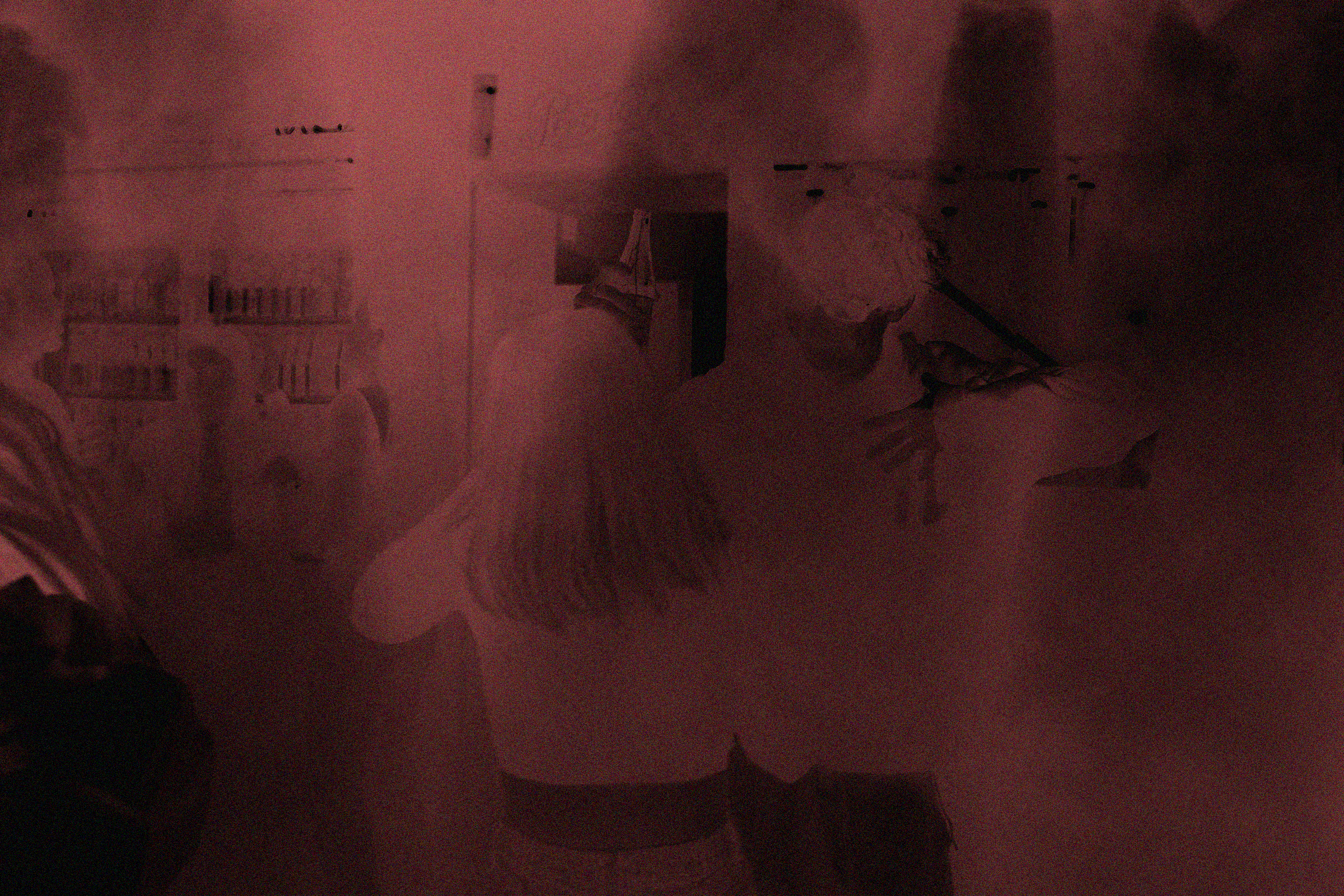
Clubs are feeling the pinch... but so are their customers. The NTIA has reported a 20-30% drop in consumer spending in its latest club report. While a recent YouGov poll detailed that over half of Brits were unable to afford to go to a music event, with nearly 18% saying they were regularly unable to afford gigs. Many venues Mixmag spoke to for this report highlighted no-shows, last minute ticket buying, late arrivals and issues with transportation as their major concerns.
Rishi Bagdai, DJ and founder of no_one events, believes that the impact of the pandemic has also changed the priorities of prospective club-goers. “COVID and lockdowns made people, especially younger people, realise that clubbing regularly might not be something they want – and that’s impacted consumer demands right now,” he explains. no_one run events in cities across England, with recent parties taking place in London, Bristol and Leeds. Rishi, who started the enterprise in Bristol as a student, says: “[Changing circumstances] is affecting ticket sales for events, for many promoters, a combination of a lack of demand and people’s lack of disposable income means that many promoters have to leave the business because they don’t sell tickets.” However, Old Red Bus Station’s Rik-Ines Andrin thinks the problems go much deeper than attendance. “We’re currently working on 30-40% of the ticket sales,” she says. “But we’re not even back to full capacity. And we’re doing better than some other clubs. But it’s still not enough when we are having a good night, we’ve accepted that we’re never going to hit full-capacity again.” The MVT's annual report details that while average spending has gone up, the number of people “in the room” has gone down. “I think coming out of COVID everyone went a bit mad, but now pockets are tight people are being more selective,” says 24 Kitchen Street’s Saad Shaffi. “The bus stops seem emptier. Houses are busier. But if you can buy a bottle of vodka in the shop for £10 and put the volume on maximum in your house and invite a few friends over, why would you go out and spend the same amount on one drink.”
Even if ticket sales are healthy, crowds waiting until the last minute - sometimes even buying on the door - is compounding anxieties for those facing astronomical costs, not knowing if they will be able to pay suppliers until the night of an event. “Recent times have seen early release ticket sales absolutely plummet,” say Connor Cooper and Wakil Ahmed of Manchester-based party Left, Right & Centre. “Often over 80% of tickets are now being purchased for events as a last minute decision in the last few days leading up. We’ve thought about this a lot, and it must be because people only want to commit early on to events they know they 100% want to be at, or they think they’ll miss out if they don’t buy one.” Club Djembe's Jake Knight says there were "warning signs" last year. "People were saying ticket sales aren’t happening throughout the week," he reflects. "But now it’s the day before or throughout the day of the event — that’s been getting worse and worse. Our numbers haven’t changed much, but people are turning up at night instead of pre-booking a ticket.”
While Saad Shaffi says advance tickets are “bouncing back” for 24 Kitchen Street, attendees buying tickets 48 hours before a night last year had been a huge source of worry for the venue. “It was quite worrying when you had a massive bill to pay for the DJ/artists, plus wages and overheads. It was getting to the point where you were worried you might lose your house 14 hours before an event.” Olli Ryder of new Manchester venue The Loft says the issue is "causing massive anxieties" for promoters across the country, "We don't know if shows will be a success or not until the night. It's our of our control to a certain extent." Cardiff-based promoter TEAK, that has been running for nine years, say the increase in financial liability due to the cost of living crisis has forced them to be extremely cautious, as "when you combine this with an increase in last minute ticket sales, it can lead to multiple sleepless nights and raised blood pressure."
Read this next: Unhealthy scene: How sky high booking fees are crippling dance music
Marcos Navarro, the co-founder of Manchester-based queer party High Hoops says that while patrons are buying tickets "as close to the event as possible," he's noticed another worrying trend... no shows. "So many people are not coming to the event even though they’ve bought tickets. My general feeling is that people are buying tickets, but they aren’t really sure if they can actually afford to come. We’re really concerned about that, because you have people in the LGBTQIA+ community who are lot more isolated. People who are struggling with their mental health and socialising is important in regards to helping that. A lot of people attend High Hoops because they want to have that escape and be around their peers, it’s really difficult if they can’t. And we’re limited in what we can do because we’re an independent party, we don’t have financial support to try and help everyone out… It’s really challenging.”
Though struggling promoters often rely on bar spend for venue hire, Navarro stresses that the concern for crowd no shows among members of the LGBTQIA+ community goes beyond the financials and is a real cause for concern. "A lot of people in the community are on lower incomes, they are in jobs that are more volatile. Lots of people work in hospitality or industries where they haven't necessarily got job security. There's a lot more stress with the crisis right now and they need an outlet, and there isn't as many safe spaces because a lot of independent places are shutting down."
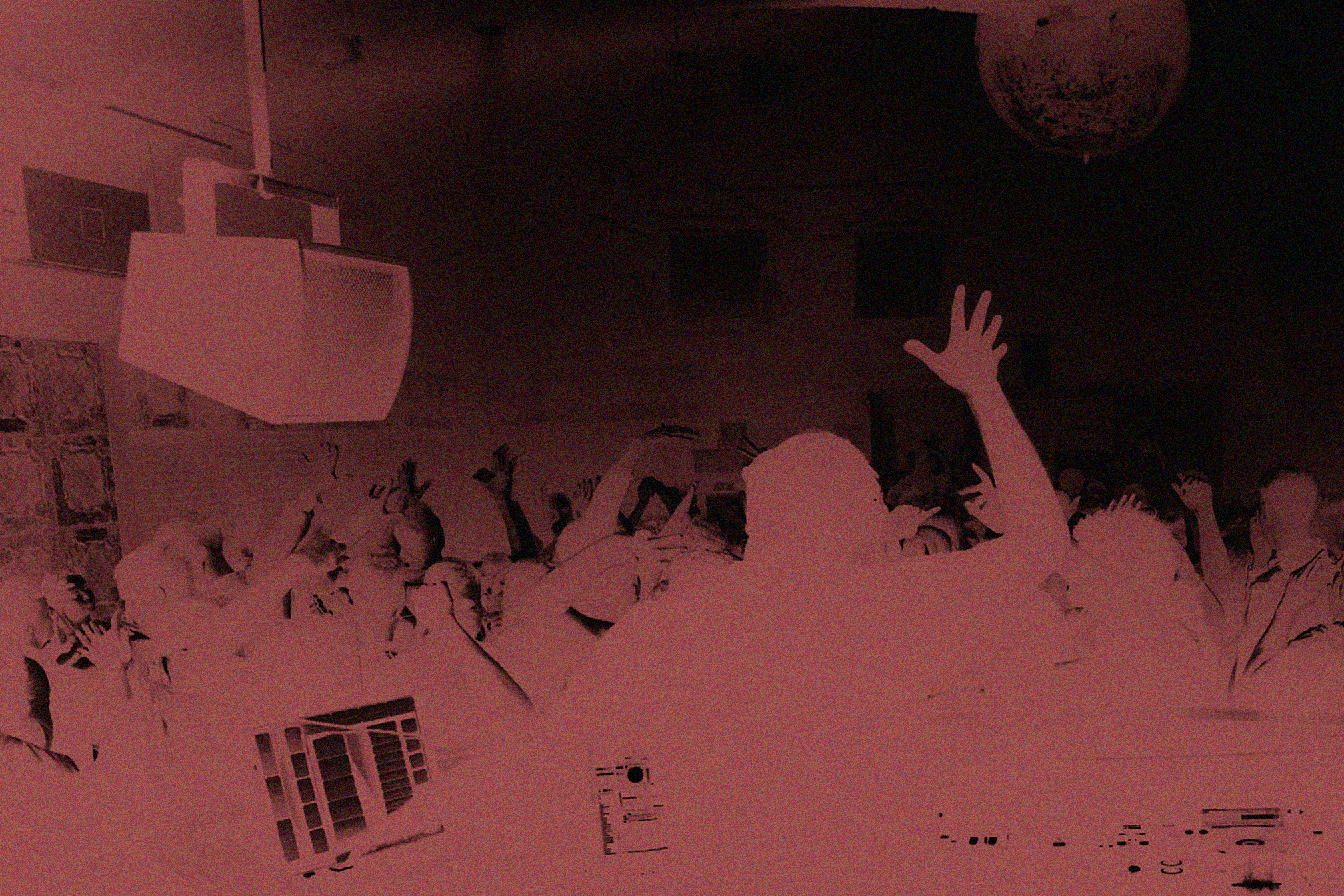
Left, Right & Centre's Connor Cooper and Wakil Ahmed say that "across the board" they've witnessed crowds arriving "as late as possible" — presumably to pre-drink and save money. "We also think crowds are arriving more messy," he says. "People are looking at other ways to let loose that isn't a super expensive single spirit and mixer in the club." Cooper and Ahmed add that the financial pressure on customers has led to more complaints if they "don't get the experience they paid for." "At our last show at White Hotel, someone asked me when the 'drum n bass' ends and when the techno would start — due to us playing bassy stuff at 100-130BPM. As frustrating as that comment is, we get it. People only have so much money and tickets are expensive. They want to feel like they've made the right choice of where to be on the night. "
A key tactic in keeping ticket buyers happy had traditionally been to offer the chance to see in-demand acts and provide a unique musical offering. However, artists, like everyone else — are feeling the pinch due to the crisis, with many attempting to recover lost earnings from two years without bookings. For venues and promoters working on slim margins, many say that artist's bookings fees and the increased cost in accommodating them at events, has been a tipping point. “In terms of booking artists it has dramatically hit our budget," says Lo5ive, who runs event series Kultura in Manchester, though the city has a rich array of independent promoters and venues, day festivals and events at huge venues such as O2 Victoria Warehouse or The Warehouse Project, that book multiple acts for a multi-stage offering, can cause problems. "It's making it harder to compete with bigger brands who can afford to pay higher fees,” he adds.
A huge hinderance for securing stellar bookings seems to come from transport issues. The cost of fuel has skyrocketed as a result of the energy crisis, and every mode of transport from trains to planes, has seen increases. "Travel costs have almost tripled in some instances when we're booking flights from somewhere else in Europe," says George Griffin, of Liverpool venue Meraki. For those living in less connected areas of the UK, transport issues have become even more severe. COVID saw the number of routes between Belfast and European cities reduced, creating issues for Plain Sailing promoter Andrew Moore. "For example, there are no direct flights to Belfast from Berlin anymore, which is just ridiculous," he says. "We have to fly artists into Dublin, then we have to drive two hours there to go and pick them up. Even then the artists are having to get transfer flights in London, it adds an extra £150-£200 onto the booking. I know finances shouldn't be the sole reason you're running gigs, but when you've been doing it for so many years it's just really sad to see a potential tiny bit of profit wiped out by a flight. There's an element of helplessness." While Cardiff's TEAK have always had issues with a lack of international flights to Wales, the financial toll is making the situation worse: "We generally preferred trying to get flight shares with nearby-ish cities but it was never necessarily essential for us [before the crisis]," they say. "Due to increases in these costs, there is now no way we could afford to book an internationally based artist without a share with a Bristol promoter."
And even once an artist is in the UK, transport issues continue to bump up costs. High Hoops' Marcos Navarro, whose party operates an environmental policy and also uses flight shares with promoters across the UK, has found the high cost of trains and current unreliability due to rail strikes - a direct symptom of the cost of living crisis - has meant that getting artists to the party has become increasingly difficult. "At a recent party, flights from Berlin were a bit of a mess so we had to spend a ridiculous amount on flights to begin with. Then we had to book two train tickets, two coaches — just in case one isn't running. Our margins are completely eroded."
Read this next: 91% of musicians say they can no longer afford equipment
"It used to be where we'd offer the artist £500, but now travel and accommodation rates have shot up. It's now £300 realistically for that," says Club Djembe's Jake Knight. "So if it's actually costing £800 to have an artist come and play at a 250-capacity venue, tickets are a tenner... you haven't got much to take home." Rik-Ines Andrin of the Old Red Bus Station, that began on an ethos of highlighting local talent and up-and-coming artists alongside bigger names, has been priced out of acts due to extra costs. "Like every other venue we're inundated with agents getting in touch about certain artists, or if you end up inquiring, but when it comes to travel expenses and people's fees - I won't mention any names - but there are a few people now where I just have to close that door on them as we can't afford it, they aren't making it viable," she says.
"I also believe some of the less scrupulous agents have inflated their artist's fee recently because everything else has gone up and they've used inflation as an 'excuse' of sorts," say TEAK. "They need to be more realistic with their fees and general terms. There is an expectation for promoters to push the costs onto customers. We're in danger of pricing young people out of clubbing, which is bad for the future of the industry."
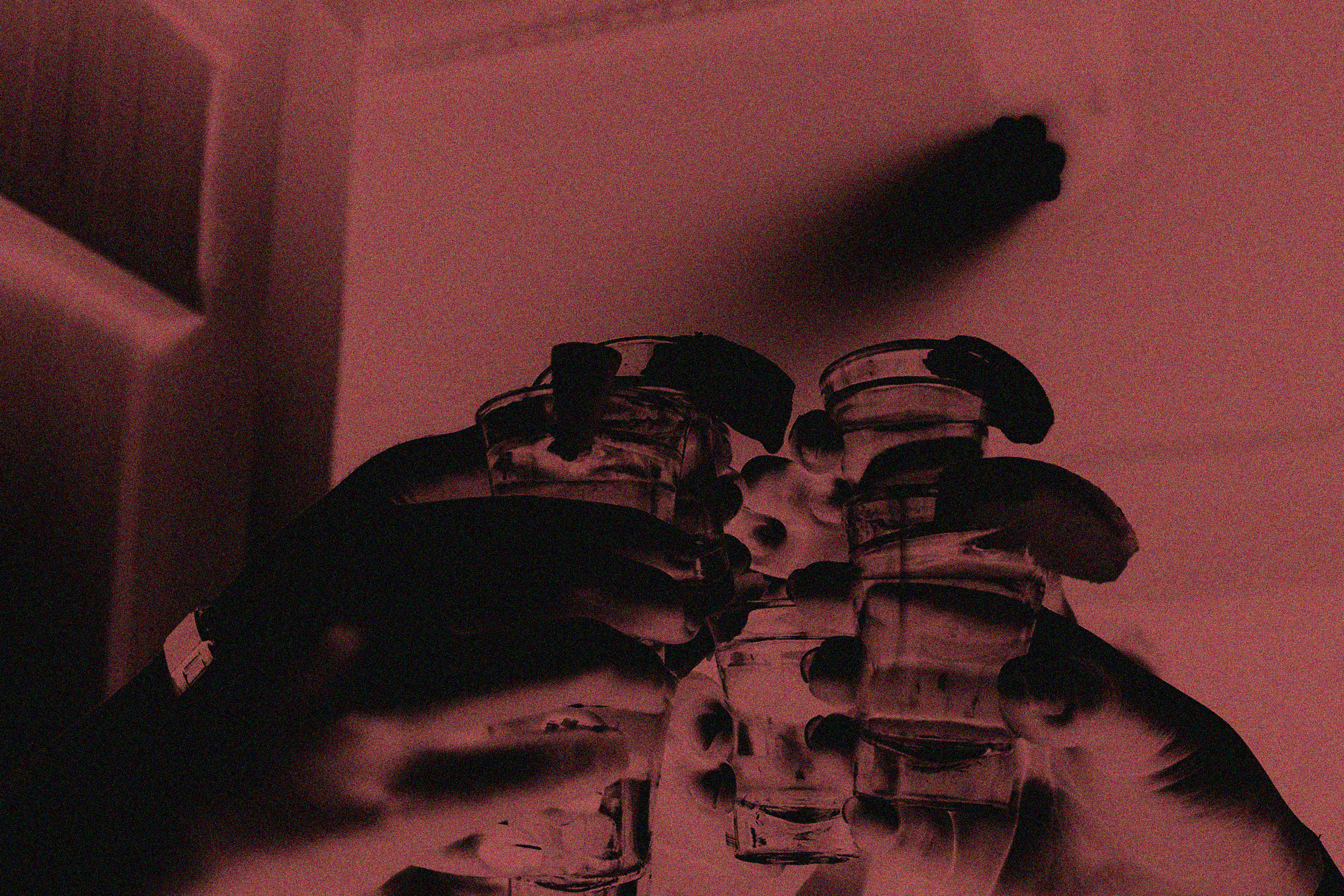
Despite increasing ticket costs being perhaps the obvious answer for venues and promoters, there are a multitude of factors that mean they can't. The NTIA's Michael Kill explains that, despite suppliers "passing costs on" to venues, they in return can't do the same without alienating their customers. "Venues are in a position where they can't do that, the suppliers can — such as drinks/ice etc. Because people have to buy them in order to operate, but venues can't because if they do it will impact on frequency of visit, dwell time or spend. All of which are counter productive in terms of your overall revenue."
“I’d be inclined to raise my prices so the venue can pay their bills," says no_one's Rishi Bagdai. "But that alienates a lot of people who could come because they’re also struggling. Then I feel like I can’t run as many events – and then in turn venues lose out because promoters such as me run fewer events, and the domino effect continues.” The Cause's Stuart Glen shares Bagdai's apprehension: "We never want to increase our ticket price by a lot, because we find that it never really works once it gets over £20, might be £25 or £30 if it's a huge act. But we know our market won't pay it if it's too high."
"As a venue, we do our best to not make any tickets above £15 and there were only two events last year we did: a last minute Hector Oaks show and Denis Sulta. But I also know going forward that's not going to be able to carry on. I'm going to have to increase the amount we charge for tickets, whether it's by £1 or £1.50," says Berkeley Suite's Bonzai Bonner. "But also ticket platforms have increased their booking fees. So it's costing the crowd even more already." Alongside booking acts for Berkeley Suite, Bonner runs Glasgow-based LGBTQIA+ party Shoot Your Shot, and shares another stark issue in increasing ticket prices for promoters. "The audience for the party is a lot of people who are extremely marginalised, a lot of trans people/LGBTQIA+ people. Glasgow currently has an incredible independent queer scene, one of the best in the UK, but people from those groups aren't necessarily going to be able to afford more than £15 for a ticket. It's keeping a balance and being accessible."
Similarly High Hoops' Marcos Navarro says that while costs for everything else have gone up, the party can't justify increasing ticket prices to over £15. "All of our other costs have gone up. Travel has gone up, venue costs have gone up, riders have gone up. We don't get any support from the council or the government, and we also don't want to increase our ticket prices because we understand the importance of making it accessible for people that want to come to our event." We work within the budget, but it does become more difficult for us to be creative, to be a bit more experimental and to pay people more."
Read this next: 86% of Brits say music helps their mental health and personal relationships
Venues and promoters, particularly those at a grassroots level, are integral to a healthy music eco-system. Those who operate within the sector are becoming more and more aware of what is at stake if the financial burden they are currently experiencing were to get any heavier — creating an untenable environment for new parties and dancefloors to come through. “There are brands that have been running for years who are having to close because they’re not hitting targets for sales this year," says no_one's Rishi Bagdai. "Bristol for example, usually there are around eight new promoters or parties a year, and out of these eight, normally one or two make it. But that initial eight has gone down because people can’t afford to put parties on anymore. We’re heading toward some sort of monopolisation of parties because the economic crisis is killing the DIY partymaking scene.”
"I honestly think the only people who are going to weather this storm are the big brands," agrees Club Djembe's Jake Knight. "I think if I was going to throw a party now I wouldn't necessarily make it about music. Everyone's costs have gone up, if someone is going to buy a ticket to go and see a DJ they will go and see someone they desperately want to see instead of unknown artists. Small venues will be the ones that suffer. " Old Red Bus Station's Rik-Ines Andrin believes the shift has already started. "The young promoters, the young artists, the young producers... it's all about time and the living standard. For them to have the time to make music they have to have a job to support themselves, but because everything has gone up they are now doing two-three jobs which means the time that they have to put into music is limited, they don't have support for everybody. So therefore, the door is closing."
"Culture is important for our wellbeing, from the pandemic we've lost two generations of kids. In Leeds, the young people from here simply can't afford to spend anything, it's only the students who can," she continues. "We're up North, we don't get any help. The local kids are barely able to actually feed themselves, never mind actually go out. One round of drinks is costing them their whole budget for the month. Our whole model was on supporting new breakout talent, we wanted 35-37% of us promoting residencies. Then we wanted them to spring out and we'd take the hit. At the moment, we're still doing it, but we're losing so much money."
Boyd Sleator of nightlife campaign group Free The Night says the effects of the crisis have dealt a heavy blow to the Northern Irish scene. “What we’re seeing now is that these artists, venues and businesses not only have to try and pay back any loans they took out during the pandemic but also some businesses have seen their energy bills increase tenfold – which is not manageable. Individual artists, no matter how successful, are struggling to pay the bills – and there’s a real lack of support. Hospitality workers are some of the lowest paid in Northern Ireland, they’re most likely to be subject to the likes of zero-hour contracts. A lot of these people, who are integral to keeping the nightlife scene moving, are now below the poverty line and are not getting help.”
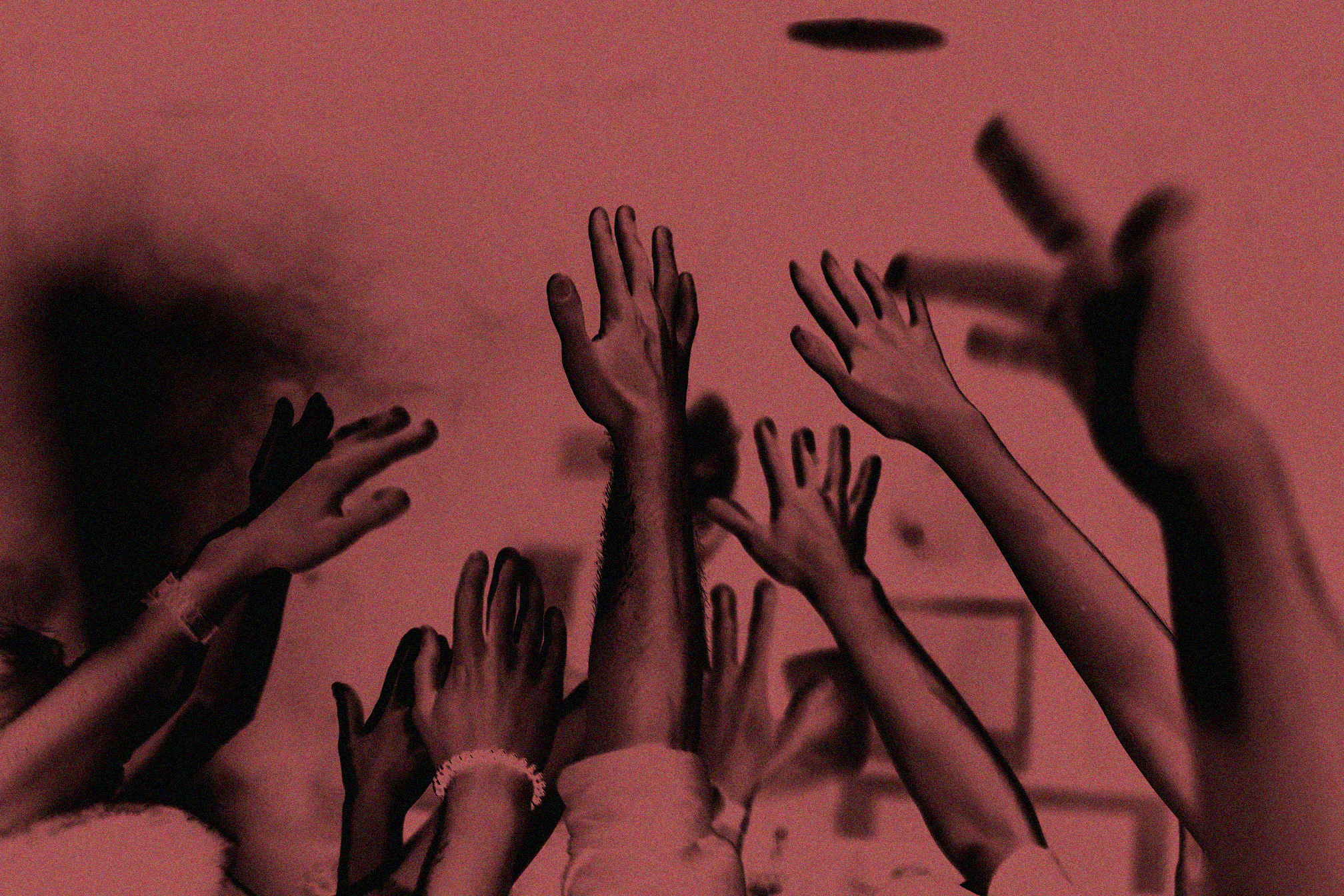
The current circumstances are creating a worrying trend, providing no financial incentive for budding creatives and closing the door to any that cannot afford to create. The end result looks to be where the only way to make money from holding music events will be dominating, mass-attendance promoters and an ever-narrowing pool of lucky breakthroughs who are terrified to take risks. "I don't feel like you ever actually see any of the money you make right now, you're just constantly reinvesting it into the next thing," says Plain Sailing's Andrew Moore. "Promoters are trying to balance what's financially worthwhile while trying to curate a memorable and creative experience. It's a balancing act I think we've gotten right over the years, but you do sometimes feel like you're constantly up against it."
"For us the one of the biggest challenges of promoting is always the mental one and the general feeling leading up to our events is often dictated by how the advanced sales are doing," say Left, Right & Centre's Connor Cooper and Wakil Ahmed. "A lot of the time, when advanced sales are poor, it makes us doubt what on earth we’re doing making such huge financial risks, in times where everyone is cutting back on their spending. Not coming from an infinite money tree to reach out to doesn’t help, the anxiety leading up to shows can really take its toll," they continue. "It makes us want to take a lot less risks with our bookings, which is a shame, as it really limits our pool of selection and in turn opportunities for artist breaking out rather than established acts."
So what are venues and promoters to do? During the pandemic there were a number of support options available to businesses impacted by lockdowns and restrictions such as furlough, tax breaks and grants. The majority of venues and promoters that Mixmag spoke to were not aware of any available help at all. "The support has dried up," says the NTIA's Michael Kill. "I think the government wants to look at long-term investment and growth, but as an industry we've got an immediate issue which is we're losing businesses and its become untenable to open any more — and we've got shortages of staff, attendance drops... there are so many issues, you could go on forever."
According to CGA figures, independent businesses are being reduced at a rate of around 13%, while Kill explains, corporates and conglomerates are at a far lower 3%. "When you look at how the government have put things together, they've created a platform for the survival of corporates and not the survival of independent operators," he adds. "I think the fear is, as the government continue down this road of making things easier for corporates, the businesses on the high street are being bought up and we're going to lose our character. The businesses that are creative, who have the ability to think differently and are entrepreneurial - who aren't having to brand tie - are being lost."
Kill shares that in working to try to save nightlife spaces, a consistent issue for the NTIA is that the government "don't understand electronic music." "There's a big issue about risk narrative," he says. "If you go to Visit Britain across the country and you look at the 25 major cities - it's only about four of them that highlight music/nightlife or anything like that. But If you put the time into nightlife economy and counter-culture you might be surprised, there are 300 million nightlife tourists that come to the UK every year — that could become 500 million."
Read this next: One third of UK nightclubs closed by the end of 2022, report reveals
Those who are persisting through the crisis, despite everything being stacked against them, seem to be doing so mostly for the love of music and the feeling of responsibility in upholding nightlife culture. There are a number of clever ways in which venues and promoters are attempting to manoeuvre the current climate — whether it's earning money from alternative avenues such as merchandise, offering community ticket prices and more. High Hoops have a long-held policy of flexible booking fees, paying all artists on their billing fairly, regardless of experience or following. "Any artist that plays for us, even if it's their first gig, we always pay them at least £300. Then with other artists we try to come to a fair arrangement so everyone gets paid fairly. No one ever plays for free, no one works for free. And we're really transparent around it," says Marcos Navarro.
"During Manchester Pride for example, we'll have some the biggest artists who we will pay a much lower amount. But the way we explain it to them is that we want them to play and in the spirit of the event we want to make sure everyone is paid fairly. This isn't always an equal split, but we want the people who play at our party to not only enjoy coming and playing, but also to feel like they are investing in it, and the scene." High Hoops also offer reduced rate or free tickets in order to ensure people from the LGBTQIA+ community who might not able to afford it, can still come to the party. "We probably give more tickets away to the community now than we have ever done, we've seen an increase in people reaching out to us saying that they can't afford it. We always try to accommodate that if people get in touch and they wanna come down."Likewise Manchester's The Loft offers community tickets at a discounted rate via Telegram, while The Cause continues to throw free parties alongside offering discounted tickets for NHS workers. Bonzai Bonner shares that the Berkeley Suite may follow suit if forced to raise prices. "What we're trying to do this year is make it so we have 10 tickets maybe that can be available for those who might not be able to pay the top tier," they say.
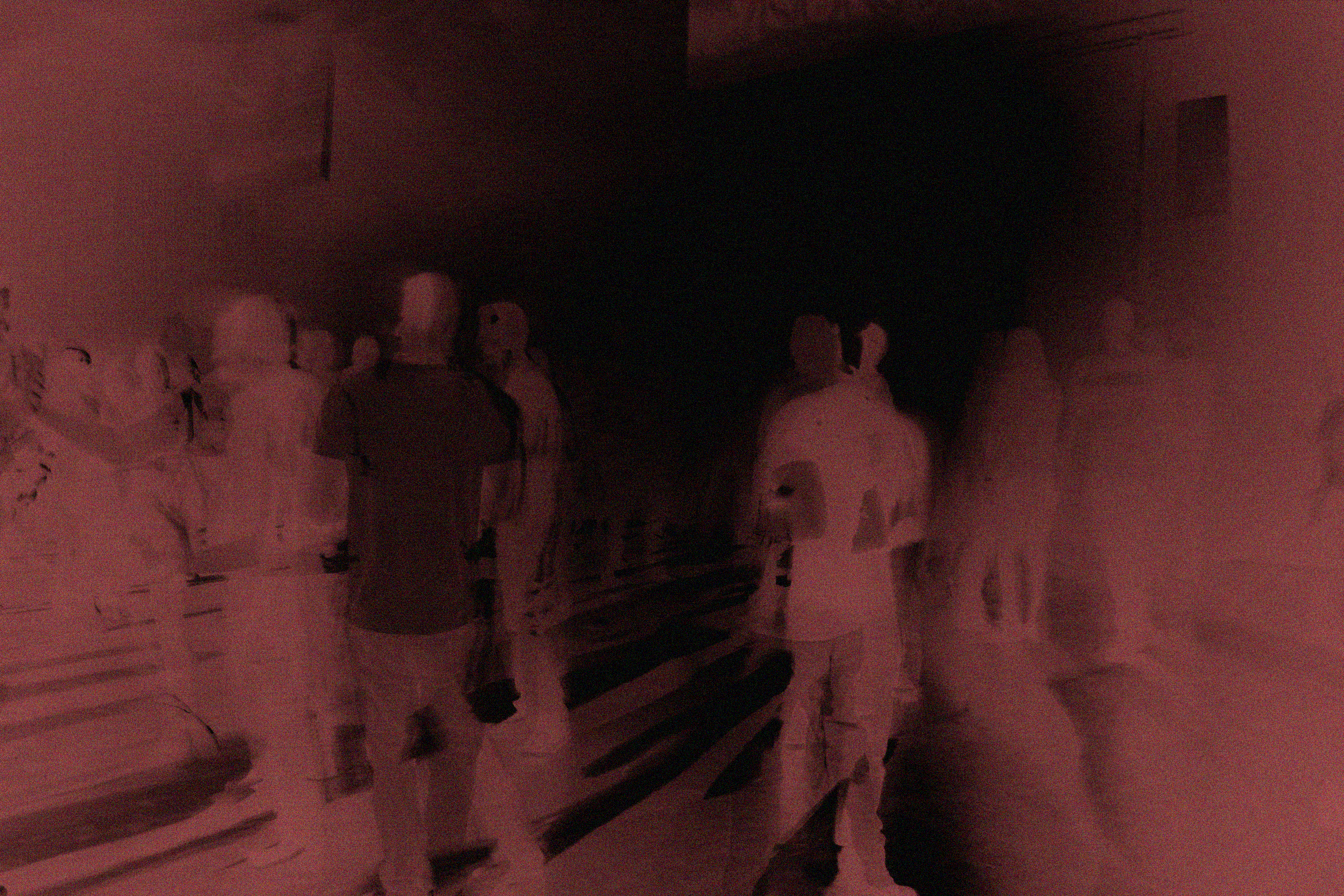
"I think right now it's a case of taking things into our own hands," say Left, Right & Centre promoters Connor Cooper and Wakil Ahmed. "It might be time for promoters to consider alternative revenue streams to finance themselves such as running a label, making merchandise, subscription formats, etc." Bristol party Club Djembe have been growing their label for some time, and now Jake Knight believes it's time to rethink what the function of parties are for the brand. "There's ways to make it work," he says. "We just have to switch the way we work events and use it less as income for the whole business and maybe use it as marketing and focus on the label as the business part." While Cardiff party TEAK think some responsibility needs to lie with club-goers to help save the parties they love. "We think it's important that everyone tries to shoulder some of the burden of this nightmare we all find ourselves in," they say. "They can help promoters and artists by being more open to going to nights with lesser known acts, also, buying tickets at the earliest possible opportunity."
Cooper and Ahmed agree that early ticket buying would provide a small respite for promoters, but that won't be possible unless something is done to help clubbers themselves manage the effects of crisis. "People buying tickets earlier just means a healthier dance music industry and one that's free to take more risks. I feel like there's two options to improve the lack of advanced sales: reduce ticket prices or help make sure the people buying the tickets have more money. The first could only really happen if all the other costs came down such as artist fees, travel, accommodation etc. Which realistically won’t happen. The second could happen, but only if the government take direct action against the cost of living crisis."
"Essentially, if you want people to spend money in this climate, people need pay rises in line with inflation," they add. "Let’s not forget that energy companies are currently announcing their biggest profits to date also. Could the increase cost of living be offset in other ways? Such as setting limits on corporate greed that exists at the expense of an entire economy?" Meraki's George Griffin agrees. "People having more cash in their pockets would make things easier for everyone, not just clubs and/or clubbers. Prices go up yet wages do not." Griffin's top advice of how crowds can help? "Support people striking, put pressure on the government, do not vote Tory in January 2025."
During the pandemic a number of nightlife institutions who operate both on and off the dancefloor received Arts Council funding and other grants as part of the Cultural Recovery Fund, which saw £1 million given to music venues to help post-lockdown recovery. However in the current crisis pots have become smaller, more competitive and a notoriously difficult and time-consuming process — with strict guidelines on eligibility. Meaning the majority of independent businesses simply don't have the resources to apply, and only the bigger organisations have been able to secure funds. "You need a team behind you to go through the application process," Marcos Navarro of High Hoops explains. "We're not able to apply for a lot of this stuff, it's the venues who are able to access that. But again, those small venues are having to cut back on running costs, cut back on staff. They're putting out fires, they don't have time to access any of it. When funds are made available, you have to apply in a really short space of time.
"We saw it through COVID, the grant funding was only really accessed by these big organisations. We've not seen any of that redistributed at a grass roots level. We need massive systemic reform. The local authorities and the government need to realise that independent promoters are actually the core part of the scene, and the value that they add needs to be recognised. There needs to be support organisations to help access that funding, and make sure that it's distributed fairly rather than a select few organisations getting it because the have the teams and resources." Old Red Bus Station's Rik-Ines Andrin believes it's squarely rests on the government to do more. "We need support, we can't be demonised. But right now, that's how I feel," she says. "The government is making us fight each other over pennies, but we need to understand how serious this is for the youth of the UK."
Read this next: New ticket bank scheme launches offering discounted tickets to those less well off in London
The Music Venue Trust CEO Mark Davyd believes the government needs to tackle energy prices first, particularly the fast-approaching "crunch point" after March 31. "Things are going to worse on April 1 if the government don't do anything about energy prices. I don't think they understand what a tipping point it could be, both in electronic nightclubs and live music venues — they use a lot of energy, the soundsystems, the lights — it's all very high use. I have no idea why they weren't included in the government's initial assessment of businesses that need extra support. It's going to have a cataclysmic effect on nightclubs and venues. It isn't affordable in anyway shape or form."
Michael Kill of the NTIA adds that a continuation of the VAT reduction, and to include alcohol sales within that, will be needed for venues to survive. "I think without a doubt VAT relief on culture would make a big difference, giving some relief on tickets would be good too," he says. "But for VAT, its positive impact needs be unilateral and include alcohol, because before they excluded it. For wet-led businesses its an important part of everything that goes on. VAT is one that we've pushed the government for." London's The Cause, Leeds' Old Red Bus Station and Liverpool's 24 Kitchen Street all shared the belief that reduction would be a helping hand.
"Frankly they need to look at how everything we're doing in this sector is taxed," says Mark Davyd. "There's an awful lot of pre-profit taxation in VAT and business rates that we simply don't have anywhere else in Europe to the same extent. A ticket is charged at 20% VAT in England, in France it's 5%, in Norway it's 0%, in Germany it's 5.4% — we're four times the taxes on every ticket, that's no way to support the industry."
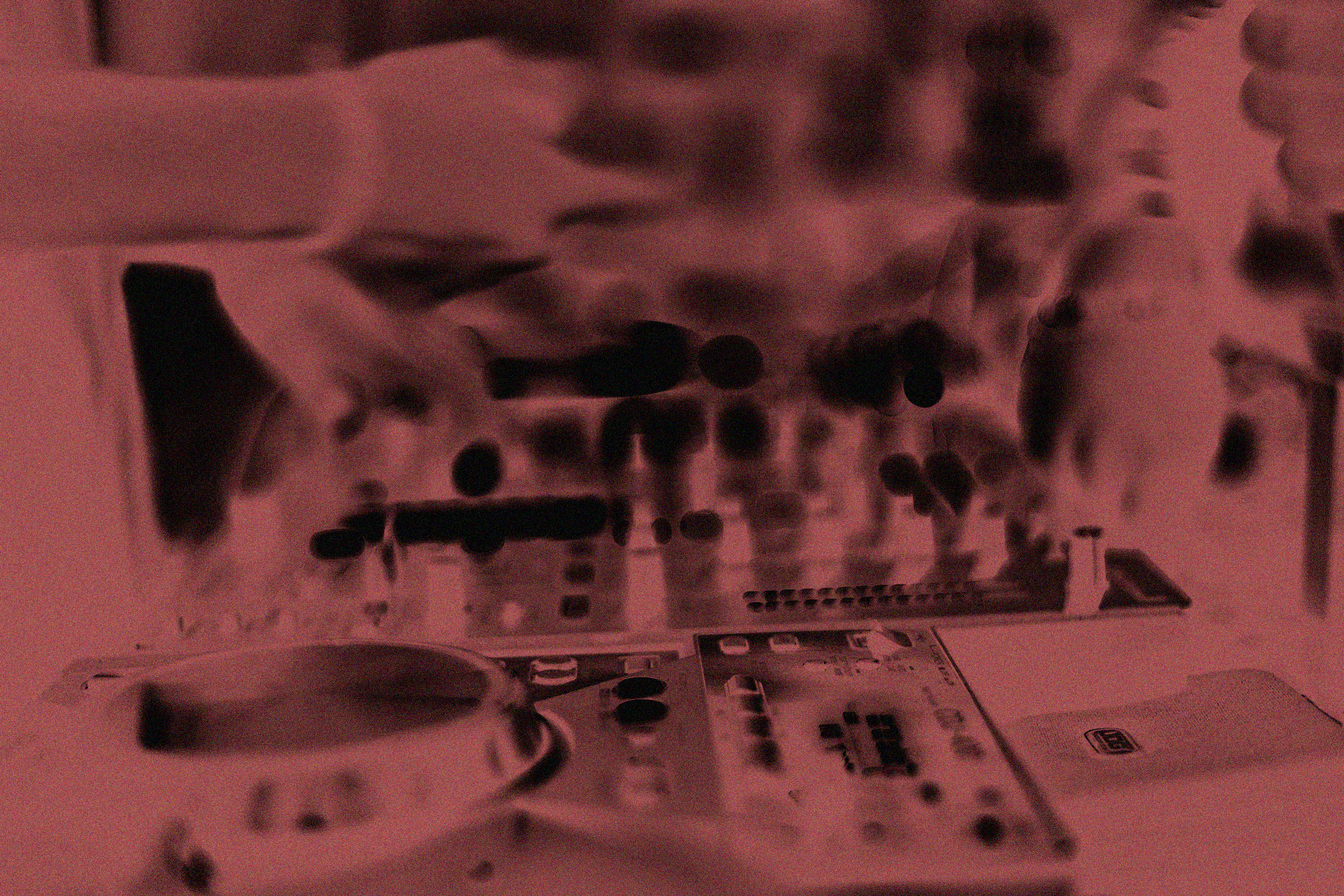
The Music Venue Trust recently released a report to parliament calling for both government assistance and for larger companies - particularly those building new arenas - to "contribute to the wider musical eco-system" by giving a percentage of earnings to help grass-roots venues. "Longer term, I think there's a question for the industry itself on what it is doing about the disparity between the money being made at the top and the money being lost at the bottom," says CEO Mark Davyd. "The UK is planning to build eight new arenas in the next five years. Let's be blunt, what are they going to put on in those arenas if nothing can come through? There are companies in this country making billions out of the product that comes out of these small venues/nightclubs and there is no reinvestment going on at all." Following the release of the report, a number of arena builders including the developer behind Bristol's proposed YTL Arena and the planned Co-op Live in Manchester, told NME that they had internal programmes designed to help grass-roots music with various community plans — but didn't specify if this would be going to existing venues.
"The question about reinvestment at this point isn't about whether that will happen, I think it's how," Davyd adds. "It's whether the new arena operators are going to realise this is an investment in our future and we need to do it, or if government is going to get fed-up with them not doing it." Marcos Navarro of Manchester's High Hoops believes this same thinking can be applied to promoters. "Those big organisations, charging ridiculous amounts for tickets and profiting off the back of marginalised groups have a moral obligation to support them," he says. "I think also, artists and agents have a moral obligation to question it. When we play at certain events, such as Body Movements, we make sure that the budget is split evenly. It doesn't feel right for me as an artist to be playing at an event and the ticket prices are super high and you're charging so much that you're taking 90% of the budget."
"I think its very short sighted, there are 30,000 people working in our sector. Every venue that closes is 13-14 jobs gone immediately, but then you have 15-20 other people who might have a 'portfolio career' — the person doing the door, who also does the bar at that other venue," Mark Davyd says. "This is the starting ignition engine of a massive industry that Britain Is famous for around the world, if we allow it to collapse — yes it will be very bad for the venue operators/the staff in the short term. But in the long-term, think about the fact Wet Leg won two GRAMMYs last week. They didn't start off headlining Wembley Arena, they'd been playing on the circuit in different bands/different venues before they reached this point. Music is a £5.6 billion industry, and we're chopping the legs out from it. I don't know what we're thinking."
The way the government, and the wider British society, treats club culture appears to be a significant factor in how venues and promoters have been left to swim up creek against a tide of economic disaster. "We never had to politicise what we were doing traditionally, because we were self-sufficient," says the NTIA's Michael Kill. "But the pandemic made people realise how little the government understands the impact of their policies. One of the big differences between us and Europe is that they understand and put a lot of value on the night-time economy. The UK is fearful of night-time economy. It doesn't really understand its value outside of economics, and even the economics are very grey. There's a lot of education that needs to take place," he adds. "We can complain about them, but if we're not represented and we're not inputting then that's down to us in some ways. Even though it's down to them to want to learn."
"The English entertainment industry is one of the most diverse in the world, that's why I came here in the first place," says Rik-Ines Andrin. "But also on a societal level, there isn't enough respect paid to culture in the UK. It's an industry sure, but we need to fight for this. To not protect your heritage, it's so sad and upsetting. The Night Time Industry is really disjointed. We need to unite, we need to talk about what is happening to us much more. I think as smaller electronic venues need to join together."
Read this next: Young people in Berlin to be given €50 card to go clubbing by city senate
There seems to be a shared feeling among all those operating within this most-beleaguered sector, that despite everything — this will end. The scene will survive. "We've lived through this kind of stuff before in Liverpool," 24 Kitchen Street's Saad Shaffi insists. "Dark times always bear a new sound, something good will come from it. People who are here to stay will just sharpen their tools. The newcomers, the lucky ones people who've got something new, will still flower." The Loft's Ollie Ryder agrees, adding: "We do it for ourselves and the people of Manchester, regardless of what the government are up to." Despite venues already experiencing near-overwhelming financial hardship, in six weeks time - when the remaining lifelines afforded by the government will either end, or be dramatically thinned - we may see many of them gone for good if there is no intervention. On top of fair and practical help in the short term, clubs, venues and promoters also need to be recognised for their unmeasurable benefit to our culture — a contribution that is, at least at grassroots level, increasingly becoming untenable and void of any financial incentive. Instead those who are persisting, with the odds stacked against them, seem to be doing so out of the belief that our dancefloors are worth saving.
So what can you, the Mixmag reader do? "Support your local venues! keep going out, keep doing it," says The Cause's Stuart Glen.
Additional reporting from Aneesa Ahmed.
Megan Townsend is Mixmag's Deputy Editor, follow her on Twitter



